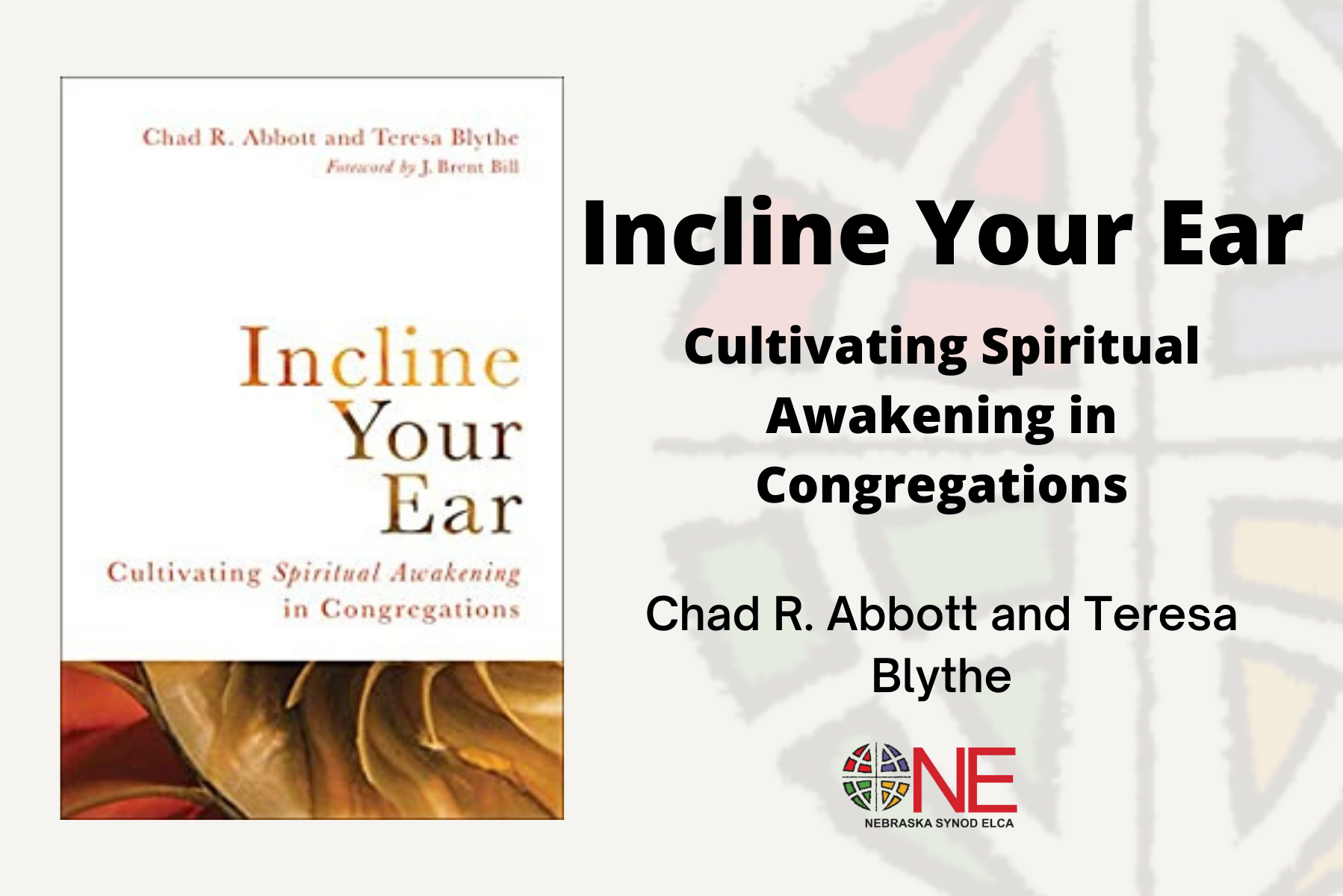News
July Staff Pick
July 6, 2022

Incline Your Ear: Cultivating Spiritual Awakening in Congregations
Is the pace of your ministry a busy one? Do committee meetings take time and energy but provide little fulfillment? Do you go home from church functions feeling unmoved? In his foreword to Incline Your Ear: Cultivating Spiritual Awakening in Congregations, J. Brent Bill writes:
The church is too busy, often with church business instead of the true business of the church. We rush to committees, commissions, meetings, and more. We often return to our homes after such gatherings discouraged or burned out, our souls hungry for spiritual food. (p. xi)
The Rev. Chad R. Abbott, a conference minister for the United Church of Christ, and spiritual director Teresa Blythe co-wrote Incline Your Ear as a road map for congregations wanting to listen together for God’s presence and call in their communal lives.
Step 1 on the road map consists of spiritual practices that help the congregation prepare for the journey ahead. These practices include Centering Prayer, the Jesus Prayer, Prayer of the Heart and more. Readers may recognize the clear step-by-step guidance for these prayer practices from Teresa Blythe’s book 50 Ways to Pray. In both, the reader doesn’t need to have a prior knowledge of these spiritual practices to try them out. The overall goal of Step 1 is to deepen the congregation’s awareness of God in their midst and in their daily lives.
Step 2 of the road map focuses on spiritual reflection, and the practices taught in this section invite participants to reflect on what God is trying to communicate. Among others, spiritual practices for reflection include the Examen, Lectio Divina and walking a Labyrinth. Each step of the road map concludes with evaluation questions, and a couple at the end of Step 2 are, “Where does our congregation feel vibrant and alive? Where does it feel dull?” (p. 60)
Step 3 is discernment, and this chapter in Incline Your Ear holds nothing back. The authors write about hard decisions congregations face, including holy closure. Discernment is a way to listen closely to what God is inviting your congregation to do, and this chapter lays out the steps of the Ignatian style of discernment, the social discernment cycle, and the ways Quakers discern communally.
Step 4 of the road map is action. It answers the question, “Now what?” following discernment. A step-by-step plan for action is outlined in this chapter, along with spiritual practices addressing the anxiety and conflict that may be felt during a time of change.
The book concludes with a chapter addressing social justice issues as well as a chapter on assessing the journey. This book would be an excellent tool for ministry leaders, church council members, those who love outreach and mission and anyone who feels drawn to the idea that there is a different and deeper way to be the church today, one that draws us even more closely to God. LEAD, an organization that shares tools for congregations and ministry leaders, is featuring Incline Your Ear as part of their LEAD READS summer reading program. If you’d like to join LEAD’s book discussion group about this book on August 24, click here to learn more.
Order Incline Your Ear at Amazon or Barnes and Noble